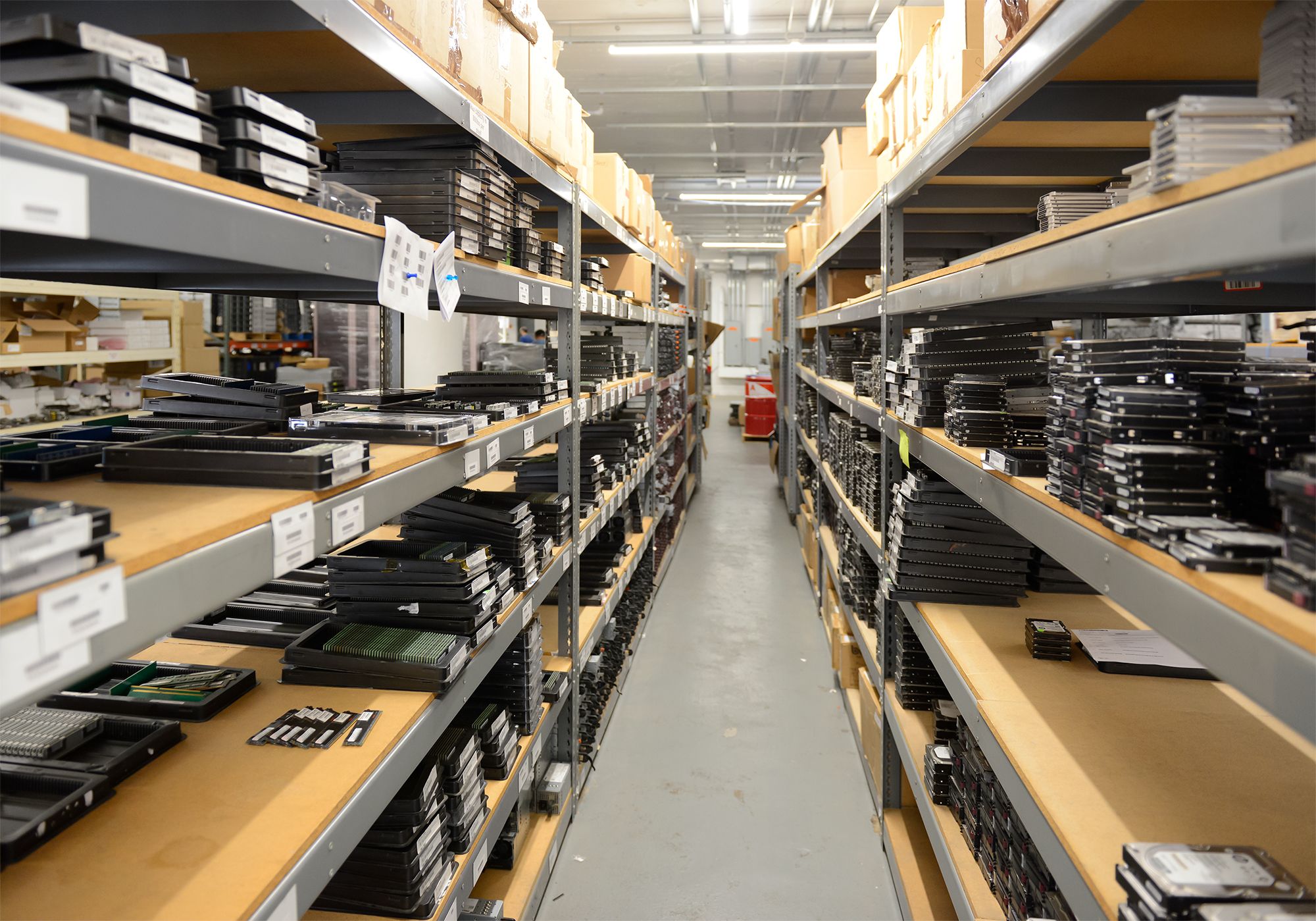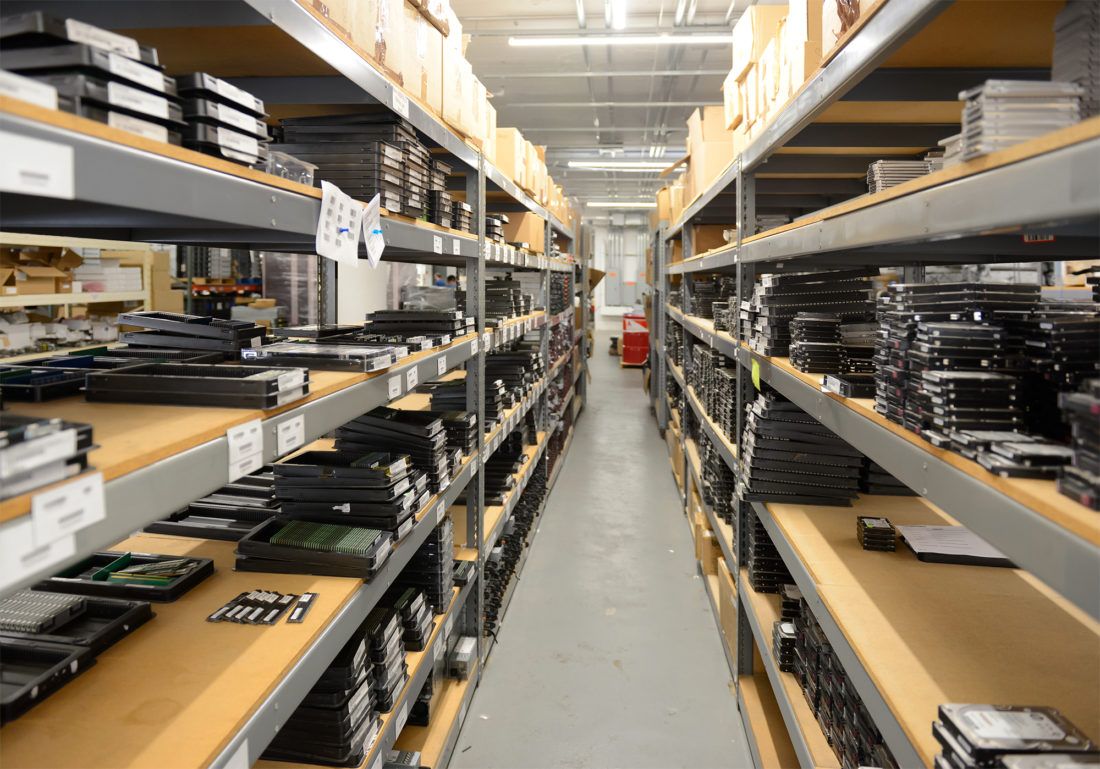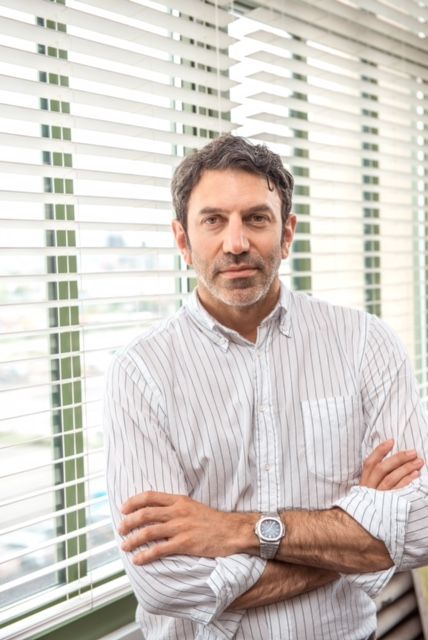Industry City Maker Spotlight: Ombligo


Across the landscape of makers at Industry City, most businesses are creating products from scratch. They are fashion and industrial designers, instrument fabricators, bakers, and much more. Ombligo, however, does things differently – it is a REmaker.

CEO Harris Edelman founded the company 14 years ago with the ethos that doing good and being profitable are not mutually exclusive. “Michael Porter and Mark Kramer at Harvard wrote recently and named it. They called it Creating Shared Value, which means you should do something good and you should do well financially, and that is a sustainable form of good business.”
So what is it that Ombligo does exactly?
As Edelman explains it, they take computers and computer parts on consignment from large corporations as they upgrade to new equipment, deinstall them, sanitize their data, inventory them, and prepare the sellable items for resale. Whatever can’t be resold is responsibly recycled.
Despite some pretty serious sleep deprivation (he’s recently become a first-time father), Edelman toured us around Ombligo’s highly organized 30,000 square feet:
And one word kept cropping up throughout our conversation: organic.
Take the company’s name. Ombligo means belly button in Spanish. Edelman was working in Latin America when he had the idea for the company and thought it was an apt metaphor. “You can assign human characteristics to parts of technology. You have a brain, which is a central processing unit people say. A monitor can have an arm, a keyboard can have a foot or a leg, but there’s no belly button because computers are made not born. So we’re the belly buttons moving the computers around.”
Organic, rather than manufactured, growth is key for Edelman. Because of this, he didn’t raise any initial capital. Rather, he started small and grew by feeding profits back into the company. Growing organically has meant growing more slowly, but Ombligo’s annual revenue, which was $120K its first year, is now about $7 million.
As revenue grew, so did the need for more space. Edelman started in a garage in South Williamsburg, where he also lived and was the only employee, doing inventory runs by himself in his 1989 Volvo station wagon. From there, he expanded to another 5-6,000 square foot space in Williamsburg until landing at Industry City. Since coming to the complex in 2011, Ombligo has moved spaces twice, first upgrading from their initial 10,000 square feet to 20,000 and then to their current 30,000 about a year ago. Employing a staff of 30, the company is also much more than just one person now. And as 40%-50% of their workforce is based in Brooklyn, staying in the borough makes a lot of sense.
With the growth of manufacturing in Brooklyn, affordable space like that is at a premium. According to a recent report by the State Comptroller, food and beverage manufacturing in Brooklyn has grown by 31 percent since 2009 and electrical manufacturing has almost tripled. In North Brooklyn, they’re mulling over zoning changes to meet the needs of industrial businesses. But in South Brooklyn, Industry City is already meeting those needs.
It’s worth noting here that “organic” is not simply a word Edelman tosses around metaphorically. Within the approach to business practices, there is a great deal of thought put into the relationship between the company and its responsibility to the natural world.
All of the inventory lives within the interior part of the space while people work on the outer edge near the windows. “Computers don’t care about natural light, so we put the homo sapiens on the outside,” says Edelman.
Upon being hired, each of those 30 employees is given responsibility for the care of a plant.
Seed-embedded business cards are meant to be scanned and then planted rather than simply thrown away.
Despite the office being a mile from Ikea, all of the desks are made from reused steel server chassis and renewable plywood tops – even the table in their conference room. In fact, some partner companies have been so impressed by this that they’ve held shareholder meetings in Ombligo’s conference room.
That’s a tangible demonstration of their commitment to recycling and environmental responsibility. Edelman emphasizes that because they’re in the “Wild West” of the computer business, there aren’t many regulatory requirements they have to follow. So they decided to self regulate and hold themselves (and their downstream recycling vendors) to the highest certification standards possible.
Of course, the business is primarily reliant on the inventory that is resold rather than recycled. The way they go about that changed about five years ago when COO Hani Keirouz came on board.
Revenue had reached a plateau at just under $2 million a year so, using Excel spreadsheets, Keirouz tried to quantify and analyze Edelman’s previously gut instinct-based approach to sales. About those spreadsheets, Edelman says, “I can’t express how sophisticated they are. He was trying to build a model that mimicked an organic gut.”
When building their own database proved to be too much for the small company, they adopted an existing system called Business One two years ago, and that is what they believe has and will continue to really allow them to scale effectively.
Keirouz points out that their exponential growth over the last few years is due to two changes they’ve made as part of their system revamp. First, they’ve moved from primarily wholesale to primarily retail through their e-commerce site and resale brand, Tech Mike NY(https://techmikeny.com/):
And second, in addition to consignment inventory, they now also purchase inventory, which they didn’t do previously.
Edelman likens what they’re trying to do on the retail side to the used car market model of sites like CarFax and Auto Trader. “No longer buyer beware,” he says. “We have become that rare reputable mechanic. Tech Mike is that guy in your neighborhood who you’d go to – who you’d feel good about telling your brother or your mother about setting up WiFi. People who are just getting involved with technology can go to our site, chat with one of our experts, and see what configuration best suits their needs.”
And all of it – from partner consignment inventory to securing data to separating parts to retail customer service – operates from those specially fabricated desks at Industry City. Those desks are definitely emblematic of what Edelman is trying to do within that 30,000 square feet: birth new life into old tech responsibly without losing money.
Seems like he’s got a jump-start on that fatherhood thing.
This post was sponsored by Industry City. If you would like to reach our readers, please contact us.